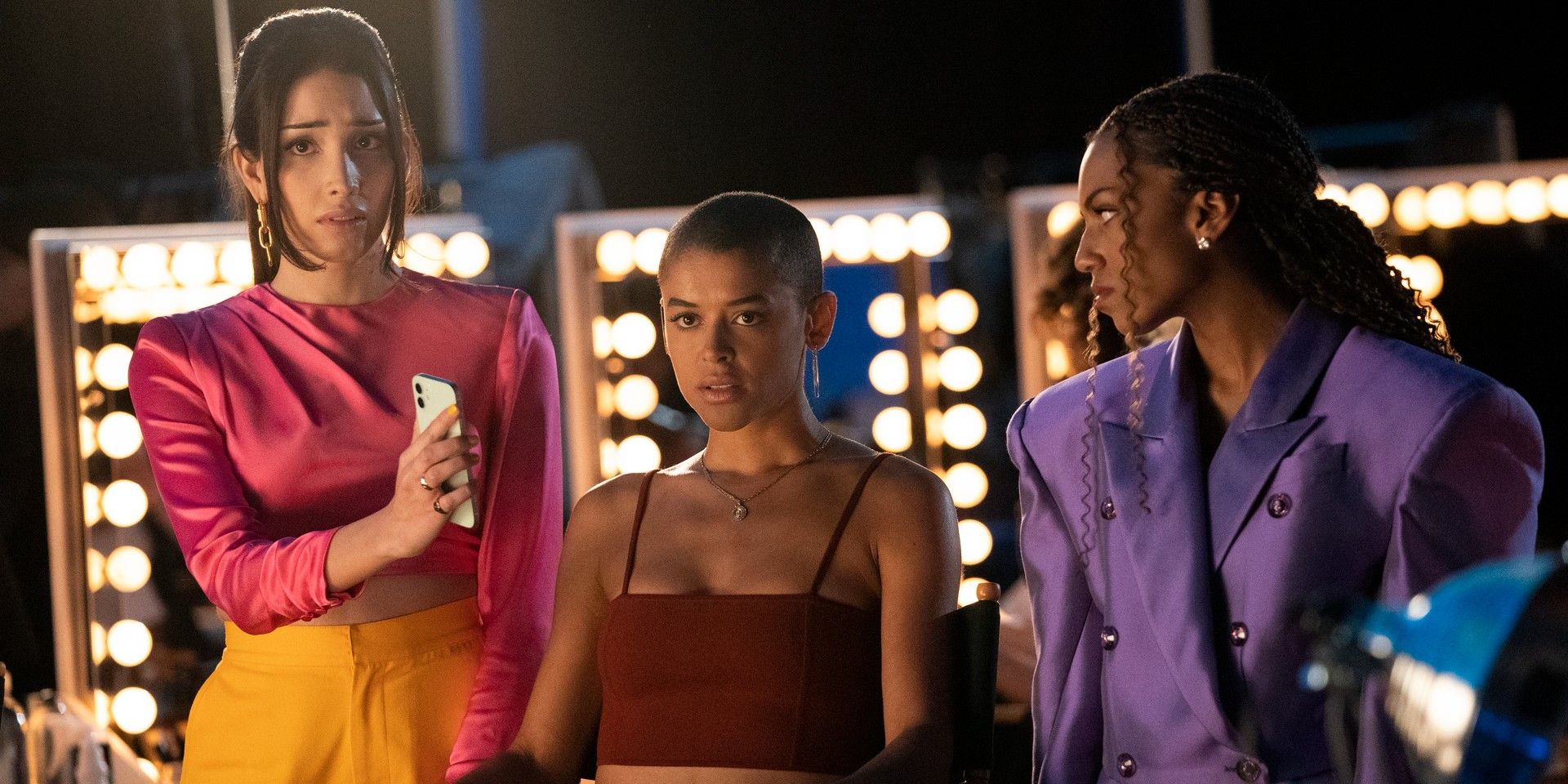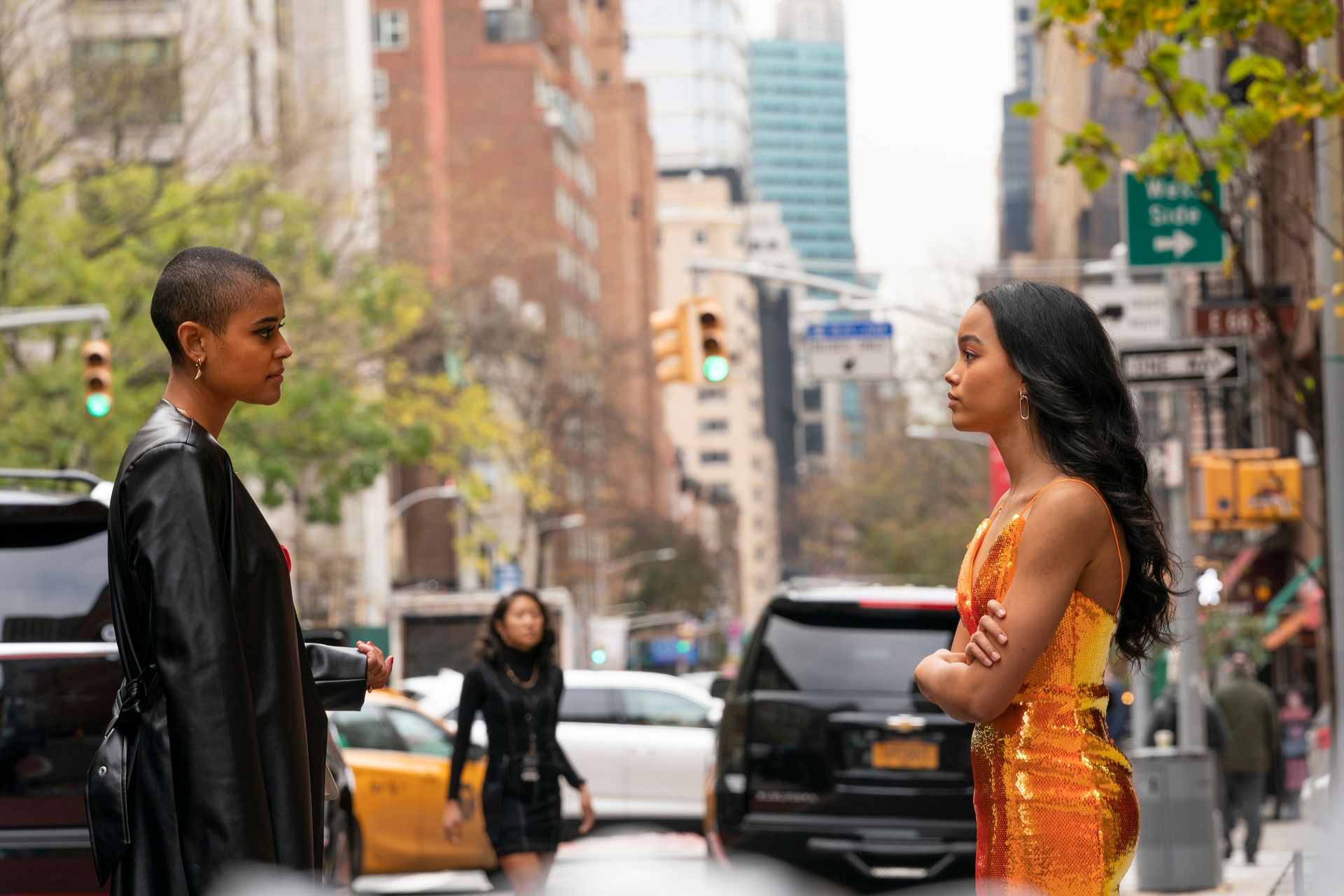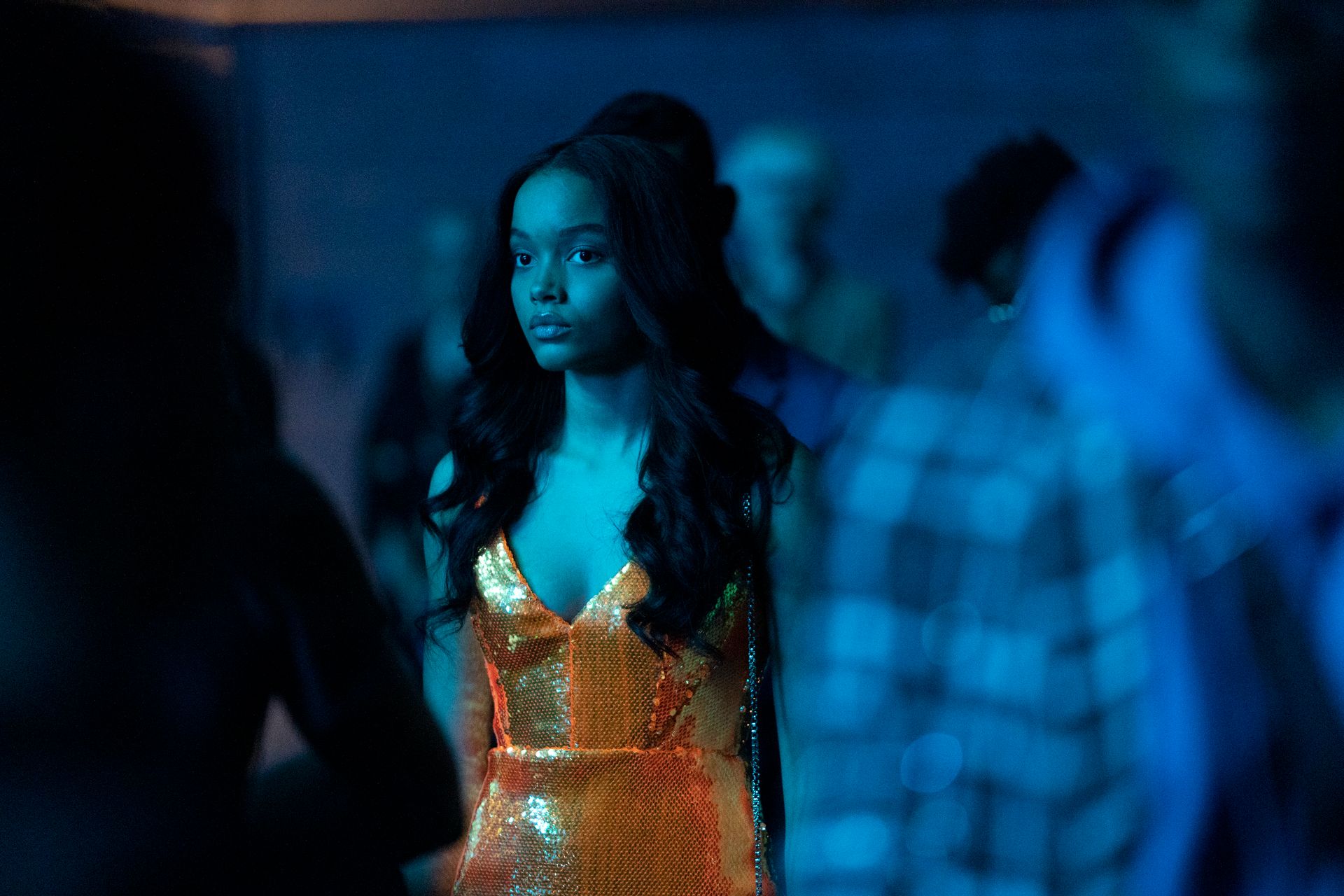Gossip Girl, which ran from 2007 to 2012 on The CW, was always more clever than its "guilty pleasure" status indicated. Led by a fantastic performance from Leighton Meester as the brilliantly devious yet inspiring and vulnerable Manhattan socialite Blair Waldorf, the series benefited from its lowered expectations and delivered intricate storylines and memorable characters. Like most network soap operas, however, Gossip Girl become increasingly ridiculous as its six seasons wore on and much of its sharpness diminished over time.
The new Gossip Girl sequel series, created by Gossip Girl writer and producer Joshua Safran and executive produced by original creators Josh Schwartz and Stephanie Savage, seems determined to avoid that "guilty pleasure" designation. Premiering on HBO Max, it seems ready to follow in the footsteps of Gen-Z dramas Euphoria and Generation -- series that have received acclaim for portraying the complexities of modern teen life. 2021's Gossip Girl is self-consciously diverse and progressive, and its careful inclusiveness sometimes undermines the entertainment value of its soap opera-like characters behaving badly. The original Gossip Girl characters were delightfully unapologetic, while these characters are quick to apologize.
That may make them more admirable, but it also makes them less interesting. Still, Safran throws in plenty of juicy drama, and while actual teen audiences may prefer HBO Max's other teen-focused series, fans of the original Gossip Girl will find plenty to enjoy here. Over the course of the four episodes available for review, this Gossip Girl deliberately exists in the shadow of the previous series, in ways that can be both frustrating and rewarding.
That starts with the identity of Gossip Girl herself, a sort of omniscient narrator/instigator voiced by Kristen Bell (who returns for the new series). In the original, Gossip Girl was a mysterious presence whose true identity wasn't revealed until the series finale. In the new series, the identity of Gossip Girl is an integral part of the narrative. Bell's voice isn't heard until 20 minutes into the first episode when the new creators of Gossip Girl create their first post. The Gossip Girl blog has become a Gossip Girl Instagram account, and it's all part of a plot to bring the rich, entitled students of Constance Billard School down a peg.
The students are led by queen bee Julien Calloway (Jordan Alexander), whose world is shaken when her half-sister Zoya Lott (Whitney Peak) arrives. Julien is the daughter of a mega-successful record producer (Luke Kirby) and is a social media influencer in her own right. Zoya, however, is the daughter of a humble lawyer who previously lived in the unhip city of Buffalo, New York. Julien and Zoya's mother died years ago and their fathers hate each other.
However, Julien and Zoya don't hate each other, at least, at first. Their relationship undergoes enough twists and turns in the first four episodes to last an entire season of the old series. In general, Gossip Girl burns through plots at an absurdly fast rate, which makes the soap opera storytelling seem haphazard. In one episode, Julien gets canceled, apologizes and has her influencer status back on track all within the course of a single scene.
That breakneck pacing makes the characters' break-ups and make-ups seem disingenuous, especially between Julien and Zoya. It doesn't help that the half-sisters are the show's main focus but its least interesting characters. Julien's best friend Audrey Hope (Emily Alyn Lind) and her boyfriend Aki Menzies (Evan Mock) have nearly as many fights and reconciliations as Julien and Zoya; although, the sexual fluidity of their relationship is a bit more provocative. They're both drawn to Gossip Girl's new version of bad boy Chuck Bass, the absurdly named Max Wolfe (Thomas Doherty). Max is a pansexual dynamo who later gets bogged down in a cliched plot about his attraction to a hot teacher, echoing a similar storyline on Generation.
The intrigue is tame compared to the mean-spirited glee of the original series. The fourth episode, especially, features an egregiously cheesy speech from Julien. Most of Gossip Girl's social conscience is superficial and performative, which makes it all the more disappointing that Safran and his writers keep pulling their punches. No one is going to learn about labor rights or systemic racism from Gossip Girl, so it might as well embrace trashy fun.
Still, there's enough lively glamour to these early episodes to provide some lighthearted escapism. However, the most novel element of the new series doesn't come from its teen characters. Tavi Gevinson plays Kate Keller, the fed-up teacher who gets too caught up in the love lives of her students. Kate's fellow teachers are a bit underdeveloped, but Kate is a fascinating character. She's a stand-in of sorts for all the over-involved adult fans of teen dramas and is just as ruthless and underhanded as the Gossip Girl characters used to be.
Julien and Zoya's personas are so carefully crafted that they lack anything truly bold or daring. But Kate is past caring about what people think of her, so she's free to be mean and underhanded without regret. A bit more of that edge would serve this new Gossip Girl well.
Starring Jordan Alexander, Whitney Peak, Emily Alyn Lind, Eli Brown, Thomas Doherty, Evan Mock, Zion Moreno, Savannah Smith and Tavi Gevinson, Gossip Girl premieres Thursday, July 8 on HBO Max, with subsequent episodes debuting each Thursday.




